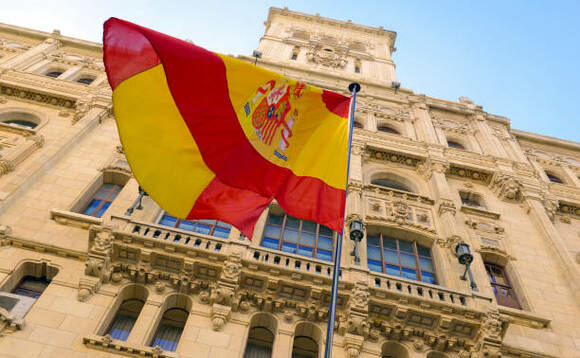Does the idea of retiring to Spain sound just perfect to your client, apart from the fact they are too young to access their pension?
Do they think they could do their job from anywhere, as long as they had a desk, laptop and telephone?
Then a Spanish ‘Digital Nomad' Visa might be the answer, says Jason Porter, director of Blevins Franks.
It brings tax breaks too.
A recent report issued by the House of Lord's Economic Affairs Committee suggests that 565,000 people left the UK jobs market from March 2020 to date - most of whom were believed to have taken early retirement. Many of those would have moved to Spain - the UK's favourite retirement destination.
Would they have been one of them if they had been old enough to access their pension?
If they are in their early 50s and dream of retiring to sunnier European climes, then the Spanish digital nomad visa might act as an interesting stopgap, while they work away the last few years before they can retire. What better way can there be of doing that in a warmer, more relaxed environment, with a lower cost of living?
They will also benefit from a very attractive tax rate for up to five years.
If the client has an understanding employer who they think would be open to them performing their role from a desk in Spain, or they have a number of contracts, then this might be an option worth investigating.
Not only might this visa allow them to get to Spain sooner than they thought, but it will also mean they pay tax on earnings at significantly lower rates than they would in the UK.
As they are regarded as a non-Spanish resident for all other taxes they should not suffer Spanish taxes on:
• Interest, dividends or other investment income where this arises outside of Spain, and
• Capital gains from disposals of non-Spanish assets
• Wealth tax on non-Spanish assets.
Spain has been talking for years about introducing a specific visa for attracting wealthy remote workers and finally delivered at the end of 2022.
They repurposed an old 2005 Tax Decree, known as the ‘Beckham Law' (after David Beckham who was one of the first foreigners to take advantage of it when he moved to Real Madrid), in the form of its new ‘tele-worker' tax legislation.
This new digital nomad visa option limits Spanish tax to a flat rate of 24% on the first €600,000 of earnings for up to five years (any excess each year is taxed at the top rate of tax).
Under this option the taxpayer does not benefit from personal allowances or any other reliefs and deductions normally due, so it will require them to have relatively substantial annual earnings to make it not only financially worthwhile, but also to justify the initial cost of any move to Spain.
While some advisers have stated it is open to both employed and self-employed people, this may not be the case, as ‘first adopter' freelancers are finding in their dealings with the Spanish immigration authorities. Any employer cannot be a Spanish entity and must have been in existence for at least one year and the employment contract for at least three months.
They must hold a suitable qualification or have at least three years' work experience. They will need to spend at least six months a year in Spain and remain non-UK tax resident.
Spain has been under considerable pressure to get this legislation on the books, and initial applicants are finding some of this granularity still needs finessing. Certain areas such as whether the self-employed qualify and what is an acceptable shareholding need more work and it is inevitable there will be some minor clarifications and legislative tweaks along the way.
While the digital nomad visa initially appears interesting to young tech-types who can work anywhere, closer inspection confirms it is really designed for the wealthier remote worker, who has sufficient earnings to fully benefit from the 24% tax rate. So they have to be sufficiently committed to invest in a long-term lease or intend to exchange their UK home for one in Spain and similarly prepared to pay the cost of private medical insurance each year they benefit from the visa.
But the total tax benefits could be tremendous when you factor in the other Spanish tax savings which might arise on investment income, capital gains and wealth tax.
By Jason Porter, director of specialist expat financial planning firm Blevins Franks and head of its European Emigration Advisory Service.





